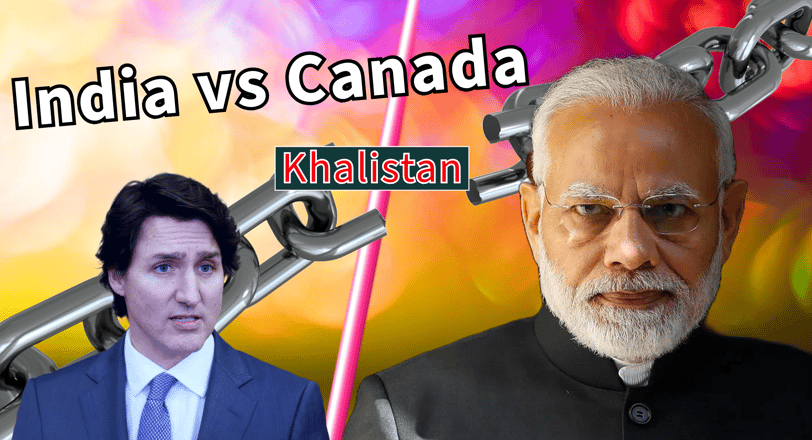India vs Canada explained!
India vs Canada The relationship between India and Canada is complex and multifaceted, encompassing historical ties, shared values, economic partnerships, and socio-cultural exchanges, but also facing challenges stemming from political differences and domestic issues.
FEATUREDENGLISHARTICALS


India vs. Canada: A Multifaceted Relationship
The relationship between India and Canada is complex and multifaceted, encompassing historical ties, shared values, economic partnerships, and socio-cultural exchanges, but also facing challenges stemming from political differences and domestic issues. While both nations share a commitment to democracy, pluralism, and multiculturalism, their interactions have been marked by periods of warmth and cooperation interspersed with episodes of tension and discord.
Historical Context:
The roots of India-Canada relations can be traced back to the late 19th century when the first Indian immigrants, primarily Sikhs, arrived in Canada. These early immigrants faced significant discrimination and hardship, but their presence laid the foundation for a growing Indian diaspora in Canada.
Following India's independence in 1947, diplomatic relations were established between the two countries. Both nations, as members of the Commonwealth, shared institutional links and engaged in cooperative initiatives, particularly in areas like development assistance and technical cooperation.
However, the Cold War era introduced complexities into the relationship. Canada, as a close ally of the United States, aligned with the Western bloc, while India adopted a non-aligned stance, maintaining ties with both the US and the Soviet Union. This divergence in foreign policy orientations led to some friction in bilateral interactions.
Economic Ties:
In recent decades, economic relations between India and Canada have witnessed significant growth. Bilateral trade has expanded considerably, with both countries seeking to diversify their economic partnerships. India has emerged as a major source of international students for Canadian universities, contributing significantly to the Canadian economy.
Both nations have also been engaged in negotiations for a Comprehensive Economic Partnership Agreement (CEPA) aimed at further boosting trade and investment flows. While progress has been made in several areas, some sticking points remain, including issues related to market access and regulatory frameworks.
People-to-People Connections:
The Indian diaspora in Canada has played a crucial role in fostering closer ties between the two countries. With a population of over 1.6 million, the Indian Canadian community represents a significant segment of Canada's multicultural society. They have made substantial contributions in various fields, including business, politics, academia, and culture.
The flow of students, tourists, and professionals between India and Canada has further strengthened people-to-people connections. Cultural exchanges, academic collaborations, and tourism initiatives have contributed to a greater understanding and appreciation of each other's cultures and societies.
Political and Security Cooperation:
India and Canada have engaged in cooperation on various global issues, including counter-terrorism, climate change, and UN peacekeeping operations. Both countries share concerns about the threat of terrorism and have collaborated on information sharing and capacity building in this area.
However, differences in подходах to certain geopolitical issues have occasionally surfaced. Canada's close alliance with the US and its emphasis on human rights have sometimes led to differing perspectives on issues such as the conflict in Afghanistan and the situation in Kashmir.
Challenges and Recent Tensions:
Despite the growing economic and people-to-people ties, the India-Canada relationship has faced some challenges in recent years. One of the main sources of contention has been the issue of Sikh separatism.
The presence of Sikh separatist groups in Canada advocating for the creation of an independent state of Khalistan in India has caused concern in New Delhi. The Indian government has expressed concerns about the activities of these groups and has urged the Canadian government to take stronger action against them.
Canada, while upholding its commitment to freedom of speech and expression, has reiterated its respect for India's territorial integrity and has assured that it does not support any activities that promote violence or extremism.
Another recent point of friction has been the issue of foreign interference. Allegations of foreign interference in each other's domestic affairs have led to diplomatic tensions and public exchanges. Both countries have expelled diplomats in response to these allegations, further straining the relationship.
The Path Forward:
Despite the recent challenges, the India-Canada relationship holds significant potential for future growth and cooperation. Both countries share fundamental values and have converging interests in several areas.
Strengthening economic ties through the CEPA and promoting greater people-to-people exchanges can help to build a more robust and resilient partnership. Addressing mutual concerns through open dialogue and diplomatic channels is essential to overcoming existing challenges.
India and Canada can also collaborate more closely on global issues such as climate change, sustainable development, and global health. As democracies with diverse and multicultural societies, they can work together to promote peace, stability, and prosperity in the world.
In Conclusion:
The India-Canada relationship is a complex and evolving one. It is characterized by a mix of shared interests, historical ties, and occasional differences. While recent tensions have posed challenges, the underlying strengths of the relationship, particularly in the economic and people-to-people spheres, provide a solid foundation for future cooperation. By addressing mutual concerns through dialogue and focusing on areas of convergence, India and Canada can unlock the full potential of their partnership and contribute to a more peaceful and prosperous world.

